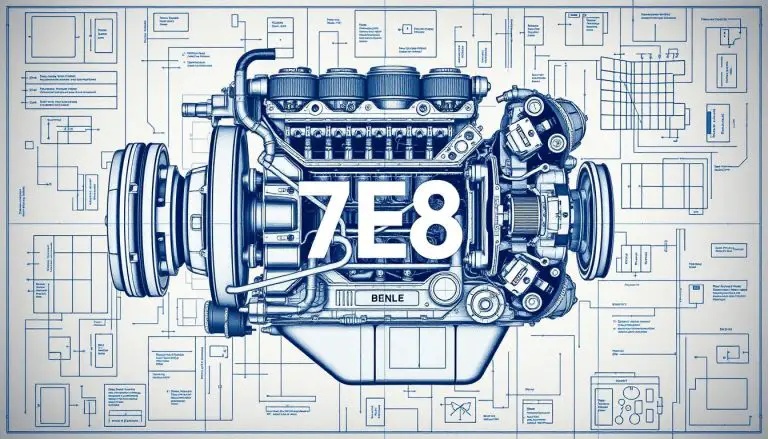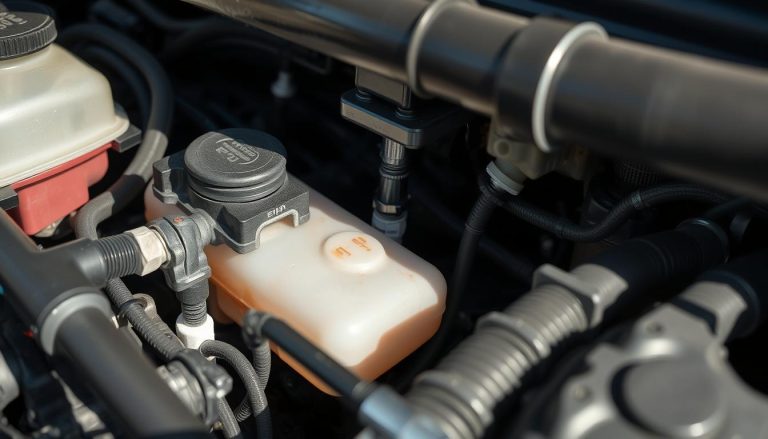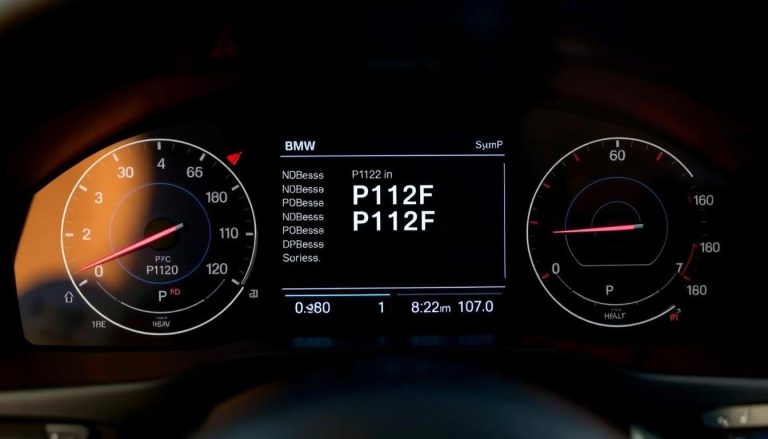When you see the P0263 code pop up on your dashboard, it can feel a bit like an ominous warning light. But what does it really mean for your vehicle? Understanding this diagnostic trouble code is essential for any car owner looking to keep their ride in top shape.
Let’s dive deep into everything you need to know about this specific trouble code: its causes, symptoms, diagnostics steps, and solutions. With knowledge comes power—and in this case, power over keeping your vehicle running smoothly!
What does the P0263 code mean?
The P0263 code indicates a problem with cylinder 1 in your engine. Specifically, it refers to an imbalance or insufficient contribution of that cylinder compared to the others. This imbalance can lead to poor performance and increased emissions.
When the engine control module (ECM) detects this issue, it triggers the P0263 code. Essentially, it’s a signal that something is off with how cylinder 1 is operating within the multi-cylinder setup.
This diagnostic trouble code often raises concerns about fuel delivery or ignition problems affecting the cylinder’s efficiency. It can also suggest potential issues with components like injectors, spark plugs, or even air intake systems.
Understanding this code helps pinpoint where to start troubleshooting before diving into repairs or replacements.
What parts can be affected by P0263 code ?
The P0263 code primarily signals an issue with the fuel injection system. This involves the injector for cylinder one, which may not be delivering the correct amount of fuel.
Other components impacted could include the engine control module (ECM). The ECM monitors and regulates each cylinder’s performance, so a fault here can lead to misdiagnosis or further complications.
Additionally, wiring and connectors associated with the fuel injector are crucial players. Damaged wires or poor connections can disrupt communication between sensors and injectors.
Issues in the intake manifold or even compression problems in cylinder one itself could arise as secondary effects of this code. Addressing these interconnected parts is essential for resolving any issues that stem from a P0263 code effectively.
What are the possible causes of a P0263 code?
The P0263 code typically indicates an imbalance in the fuel contribution from cylinder one. Several factors can lead to this issue.
A faulty fuel injector is a common culprit. If the injector isn’t delivering the right amount of fuel, it can create discrepancies in engine performance.
Another possibility is low compression within that cylinder. This could stem from worn piston rings or a damaged valve seat, impacting combustion efficiency.
Electrical issues may also play a role. Damaged wiring or poor connections affecting the cylinder’s ignition system might disrupt normal operation.
Additionally, problems with the engine control module (ECM) can misinterpret data and trigger this code erroneously. Any of these underlying causes require thorough investigation for effective resolution.
What are the common symptoms of a P0263 code?
When the P0263 code triggers, your vehicle may exhibit various noticeable symptoms. One of the most common signs is a rough idle. You might feel vibrations or hear unusual noises coming from the engine.
Acceleration issues can also arise. If you notice sluggish performance when pressing on the gas pedal, it could be linked to this code. Your vehicle may struggle to reach higher speeds smoothly.
Additionally, check engine lights often illuminate in response to a P0263 code. This warning signals that something isn’t right and needs attention.
Fuel efficiency can take a hit as well, leading to unexpected trips to the gas station. Poor fuel economy can indicate an underlying imbalance affecting cylinder performance.
Misfires are another potential symptom. If your car feels like it’s stuttering during operation, don’t ignore these signs; they warrant further investigation for proper diagnosis and repair.
What are the diagnostic steps for a P0263 code?
Diagnosing a P0263 code begins with connecting an OBD-II scanner to the vehicle. This tool retrieves trouble codes and provides insight into the engine’s performance.
Once the code is retrieved, it’s essential to perform a visual inspection of wiring and connectors related to Cylinder 1. Look for signs of damage, corrosion, or loose connections that may be causing imbalance issues.
Next, checking fuel injectors for proper operation is critical. Malfunctioning injectors can lead to poor cylinder contribution. A technician might use a multimeter or scope test for accurate readings.
After that, running a compression test helps assess the overall health of Cylinder 1. Low compression could indicate internal engine problems affecting balance.
Reviewing live data while conducting tests will provide real-time insights into how various systems interact during operation. This comprehensive approach ensures an accurate diagnosis before any repairs are initiated.
How serious Is the P0263 Code? Can I continue driving with the P0263 code?
The P0263 code indicates a problem with the contribution or balance of cylinder 1. This issue can lead to poor engine performance, misfires, and increased emissions.
Driving with this code active may not immediately cause your vehicle to break down, but it’s risky. Ignoring the warning can exacerbate existing problems over time.
You might notice rough idling or reduced power during acceleration. These symptoms suggest that continuing to drive isn’t advisable.
It’s wise to address the underlying issues as soon as possible. Prolonged neglect could lead to more severe damage and costly repairs later on. Prioritize diagnostics and repair for your peace of mind and vehicle longevity.
What are the repair solutions for a P0263 – Cylinder 1 Contribution/Balance ?
Repairing a P0263 code requires a strategic approach, focusing on the root cause. First, inspect the fuel injector for Cylinder 1. A clogged or malfunctioning injector could disrupt fuel delivery.
Next, check the wiring and connectors leading to that cylinder’s injector. Damaged or corroded connections might lead to poor performance. If everything appears intact, consider testing the compression in Cylinder 1. Low compression can indicate deeper engine issues.
Additionally, examine the ignition system components like spark plugs and coils specific to this cylinder. Faulty parts here can result in misfires affecting balance and contribution.
If necessary, replacing faulty sensors related to air-fuel mixture could also be beneficial. Each step helps ensure optimal engine function while addressing the P0263 code effectively without compromising reliability.
What other codes may be related to P0263?
When dealing with the P0263 code, it’s essential to be aware of other related trouble codes that may arise. You might encounter P0260, which indicates a problem with Injector Circuit Malfunction for Cylinder 1. This is closely linked and can often point to similar issues.
Another relevant code is P0201; this one signifies an injector issue specifically tied to cylinder 1. It’s crucial not to overlook these connections as they can provide additional insight into your engine’s performance problems.
You may also see codes such as P0301 or P0302, indicating misfires in cylinders 1 or 2 respectively. These misfire codes usually suggest a broader set of fuel delivery or spark-related issues that could influence the overall health of your vehicle’s engine.
Identifying these related codes helps streamline diagnostics and repair efforts, ensuring you’re addressing all potential issues effectively.
How much does it cost to diagnose and repair a P0263 code?
The cost to diagnose a P0263 code can vary significantly based on the service center and your location. Typically, you might expect to pay anywhere from $100 to $200 for diagnostics alone. This usually includes a thorough examination of your vehicle’s systems.
Once the diagnosis is complete, repair costs will depend on the underlying issue affecting Cylinder 1 contribution or balance. If it’s something simple like replacing a fuel injector, repairs could range between $150 and $500. More complex issues involving major engine components may set you back several thousand dollars.
Labor charges also play a role in total expenses. Rates can fluctuate, but mechanics often charge between $70 and $120 per hour. Always request an estimate before proceeding with any repairs to avoid surprises down the line.
How long does it take to diagnose and repair code P0263?
The time it takes to diagnose and repair the P0263 code can vary significantly. Typically, a skilled mechanic may spend anywhere from one to three hours just for diagnosis. This includes running tests, inspecting components, and gathering data.
Once diagnosed, the actual repair might add more time depending on the complexity of the issue. If it’s something straightforward like replacing a fuel injector or cleaning an existing component, it could be resolved within a few hours.
However, if deeper issues arise—such as wiring problems or engine management system malfunctions—the process could extend over several days. It’s essential not to rush through repairs since proper attention is necessary for lasting solutions.
Always consult with your technician about their estimated timelines based on specific vehicle conditions. Getting clarity on expected duration helps manage both expectations and scheduling effectively.
Is the P0263 code specific to certain car makes or models?
The P0263 code is not restricted to specific car makes or models. It can appear across a wide variety of vehicles, particularly those equipped with gasoline engines.
Manufacturers like Ford, Chevrolet, Dodge, and Toyota may encounter this error code in different contexts. The underlying issue typically relates to the fuel injection system or cylinder performance rather than brand-specific components.
That said, some models might show a higher incidence due to design choices or common engine platforms. For instance, certain V6 engines are more prone to balance issues among cylinders.
Regardless of make and model, drivers should pay attention when the P0263 code appears. Addressing it promptly can help maintain vehicle performance and prevent further damage down the road. Each case may have unique challenges based on individual vehicle characteristics.
How can I avoid a P0263 code?
Regular vehicle maintenance is key to avoiding the P0263 code. Make sure to follow your manufacturer’s service schedule, which often includes checking fuel injectors and engine components.
Keep an eye on your fuel quality. Poor-quality gasoline can lead to issues with combustion and injector performance. Whenever possible, use higher-grade fuels from reputable sources.
Pay attention to warning lights or any unusual sounds coming from your engine. Addressing these signs early can prevent more significant issues down the road.
Consider investing in a high-quality fuel injector cleaner periodically. This simple step can help maintain optimal operation and efficiency of your vehicle’s fuel system. Engaging in these practices will go a long way toward minimizing risks associated with the P0263 code.
What happens if you ignore a P0263 code?
Ignoring a P0263 code can lead to serious consequences. When this code appears, it signals an issue with the engine’s performance that needs immediate attention. Continuing to drive your vehicle without addressing the problem may result in more significant damage over time.
You might experience reduced fuel efficiency and power loss as the engine struggles to operate properly. Furthermore, prolonged neglect could impact other components such as the fuel injectors or ignition system, potentially leading to costly repairs down the line.
Additionally, ignoring warning codes like P0263 often leads to increased emissions, which not only harms the environment but could also make your vehicle fail an emissions test. This means you’d face additional expenses for repairs before being able to legally drive again.
Addressing any diagnostic trouble code promptly helps ensure your car runs smoothly and efficiently while maintaining its longevity. Ignoring these signs is rarely advisable if you want a reliable and safe driving experience.


